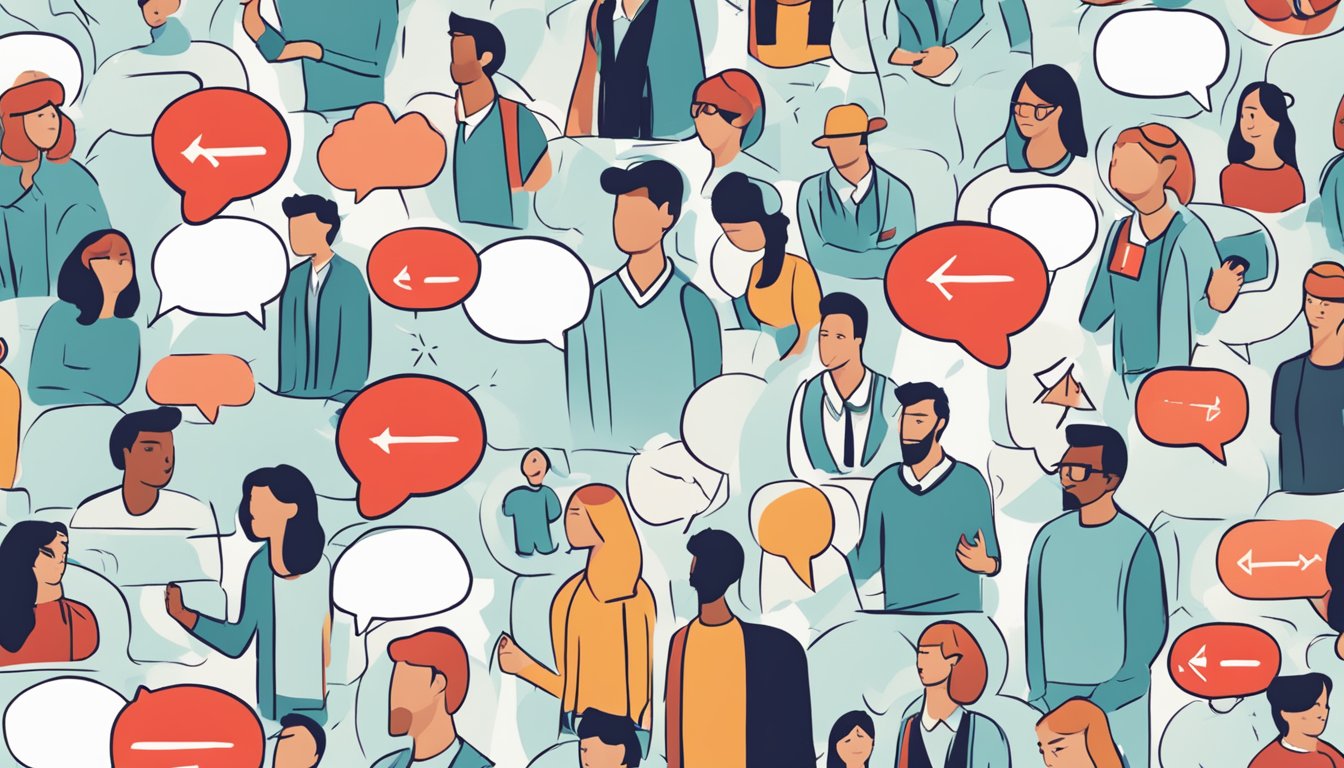100+ Worst Interview Questions: Navigating Common Pitfalls

When preparing for a job interview, you expect to discuss your qualifications, experience, and how well you’d fit the company’s culture. However, sometimes you might encounter questions that feel irrelevant, uncomfortable, or even illegal.
These questions don’t necessarily evaluate your ability to perform the job and can derail an otherwise promising interview. Knowing which questions are considered the worst can help you navigate tricky situations and maintain your composure.
Some interview questions may seem innocent but can be loaded with implications about your personal life, beliefs, or future plans that are not pertinent to your potential job performance. For example, inquiring about your age, marital status, or plans for a family can be discriminatory and are often irrelevant to your ability to do the work.
Being prepared for such questions allows you to recognize them and respond appropriately while keeping the focus on your professional attributes.
It’s also critical to note that while some terrible interview questions can be asked out of genuine curiosity or ignorance, others may intentionally try to unnerve you. Interviewers might ask brain teasers or overly complex problems that many applicants would struggle to answer on the spot.
These questions don’t reflect your job-related skills but rather put you in a high-pressure situation to observe your reaction. It’s beneficial to understand how to approach these questions calmly and professionally, without letting them affect your self-esteem or performance in the rest of the interview.
Page Contents
Understanding Interview Questions

When you approach an interview, it’s essential to grasp the types of questions that you may encounter. Interview questions come in various forms, serving different purposes in assessing a candidate’s fit for a company.
Common interview questions are usually structured and focus on your experience, strengths, and weaknesses. They evaluate your compatibility with the company’s culture and the role’s requirements. These might include:
- “What can you tell us about yourself?”
- “Where do you see yourself in five years?”
- “Why should we hire you?”
Bad interview questions are those that could be deemed irrelevant, make you uncomfortable, or aren’t legally permissible. They don’t necessarily reflect on your ability to perform in the role. Examples include:
- Anything related to personal demographic information that isn’t job-related.
- “If you were an animal, what would you be?”
To navigate the interview successfully, focus on the following:
- Understanding the Purpose: Each question has an underlying goal. Determine what the interviewer is trying to learn about you.
- Preparing your Responses: Reflect on your experiences and practice how you can articulate them in relation to the role.
- Asking Clarifying Questions: If a question seems vague, don’t hesitate to ask for more details.
- Staying Professional: Always steer your answers back to your professional qualifications and how they align with the company’s needs.
By recognizing the intention behind interview questions, you enhance your ability to respond thoughtfully, showcasing your qualifications and compatibility with the company. Keep your responses succinct, relevant, and focused on the job at hand for a compelling impression.
The Purpose of Interview Questions
When you sit down for an interview, the questions you’re asked serve multiple key purposes. Firstly, they are designed to gauge your qualifications for the job. This includes:
- Skills assessment: Determining if you have the necessary technical skills.
- Experience evaluation: Understanding the depth of your work history in the field.
Secondly, interview questions help the interviewer understand your work ethic and cultural fit. Employers look for:
- Motivational fit: What drives you and whether it aligns with the company’s goals.
- Team compatibility: How well you might integrate into existing teams.
Another crucial goal is to assess your problem-solving and critical thinking abilities:
- Situational questions: To reveal how you handle workplace challenges.
- Logical questions: To observe your thought process.
Lastly, interview questions allow you to express your career aspirations and see if they align with the company’s trajectory. An interviewer might ask:
- “Where do you see yourself in five years?”
- “How do your career goals align with our company’s mission?”
Remember, interview questions are not just for the employer. They’re also an opportunity for you to evaluate the company and the role, to determine if they meet your professional goals and personal values.
Common Interview Questions

When preparing for a job interview, anticipate these frequently asked questions:
- Can you tell me about yourself?
You might begin with your recent education or work experience and succinctly trace your career path up to the present. - What are your greatest strengths?
Focus on qualities that are relevant to the position, such as problem-solving skills, your ability to work under pressure, or leadership experience. - What is your biggest weakness?
Choose a real weakness, but one that you are actively working to improve; frame it in a context that shows your awareness and commitment to growth. - Why do you want to work here?
Highlight your understanding of the company’s values and mission, and relate them to your professional goals and interests. - Where do you see yourself in five years?
Convey your career aspirations while showing that you are ambitious yet realistic. - Why should we hire you?
Link your skills and experiences to what the job requires, demonstrating how you would bring value to the role. - Tell me about a challenge you faced and how you dealt with it.
Describe a specific situation, the action you took to overcome the challenge, and the positive outcome. - How do you handle stress and pressure?
Provide an example of a stressful situation you managed effectively and the strategies you used to stay calm and productive. - What are your salary expectations?
Research the typical salary for the role and provide a range based on what you’ve learned, making sure it is reasonable for your experience level. - Do you have any questions for me?
Always have a question prepared that shows you’ve researched the company and are genuinely interested in the opportunity.
Characteristics of Bad Interview Questions
When you’re navigating an interview, certain types of questions can serve as red flags. These questions often fail to provide insight into your qualifications or how you’ll perform on the job. Below are characteristics of poor interview questions:
Vagueness: A question so unclear that it leaves you guessing what the interviewer is seeking.
- Example: What is your greatest asset? This could relate to a variety of contexts, which makes your answer potentially irrelevant to the job.
Irrelevance: Questions that have no direct bearing on the job duties or your capabilities to perform them can lead to inaccurate assessments.
- List an irrelevant question related to personal life choices rather than professional skills or experience.
Overly Personal: Questions that probe into your private life can be uncomfortable and are typically inappropriate in a professional setting.
- Example: Do you plan to have children? This is not only irrelevant but also potentially discriminatory.
Loaded Questions: Some questions may put you in a difficult position or force you to speak negatively about previous employers or colleagues.
- Example: Why did you leave your last job? While this can be legitimate, if phrased to elicit criticism, it’s problematic.
Yes-or-No Questions: Simple yes-or-no questions often fail to provide a complete picture of your experience and skills.
- Example: Do you know how to use software X? This misses the opportunity to discuss the depth of your knowledge.
Leading Questions: Questions that suggest or expect a specific answer can be leading and might not reflect your true thoughts or experiences.
- Example: You’re proficient in all software related to this job, right? This assumes an answer and restricts your response.
By recognizing these characteristics, you’ll be better prepared to tactfully navigate these questions or even gently steer the conversation toward more meaningful topics.
List of 100 Worst Interview Questions

When preparing for an interview, it’s crucial to consider the types of questions you might be asked. Here is a curated list of potential interview questions that can cover a range of topics from your background to your work habits.
- How old are you?
- Are you married?
- Do you have children?
- What is your religion?
- What is your sexual orientation?
- Are you pregnant or planning to start a family soon?
- Have you ever been arrested?
- What is your political affiliation?
- What country are you from?
- Do you have any disabilities?
- How much do you weigh?
- What is your race or ethnicity?
- Are you in debt?
- Do you have any medical conditions?
- What is your family’s financial situation?
- Are you a member of any social clubs or organizations?
- How many sick days did you take in your previous job?
- Have you ever filed for workers’ compensation?
- What is your credit score?
- Do you plan to retire soon?
- Are you comfortable working with people of different races or backgrounds?
- How do you feel about working for a younger supervisor?
- Are you willing to relocate if necessary?
- Have you ever been involved in a lawsuit?
- Are you currently receiving any public assistance or welfare benefits?
- Do you have any outstanding loans or debts?
- What is your relationship status?
- Are you a member of any trade unions?
- Have you ever been treated for mental health issues?
- Do you have any religious holidays that you observe?
- What is your opinion on controversial social or political issues?
- Are you planning to have children in the future?
- Have you ever been diagnosed with a chronic illness?
- What is your sexual orientation or gender identity?
- Do you have any dietary restrictions or food allergies?
- How many days were you absent from work last year?
- Have you ever been in a romantic relationship with a coworker?
- What is your family’s immigration status?
- Are you a caregiver for a family member?
- Have you ever been terminated from a job?
- Do you have any tattoos or piercings?
- Are you currently using any prescription medications?
- What is your opinion on controversial topics such as abortion or gun control?
- How do you handle stress or pressure?
- Have you ever been in a car accident?
- Do you drink alcohol or use recreational drugs?
- What is your IQ score?
- Are you a member of any political parties or organizations?
- How many hours of sleep do you get each night?
- Do you smoke cigarettes?
- Have you ever been in a rehab program?
- Are you on any medications for mental health conditions?
- What is your opinion on diversity and inclusion in the workplace?
- How much do you spend on groceries each week?
- Do you have any physical disabilities or limitations?
- Have you ever been diagnosed with a learning disability?
- Are you currently receiving any government assistance or benefits?
- Do you have any debts in collections?
- Are you a member of any religious or spiritual groups?
- Have you ever experienced domestic violence or abuse?
- What is your native language?
- Are you involved in any lawsuits or legal disputes?
- How many siblings do you have?
- Do you have any dietary restrictions based on religious beliefs?
- Have you ever had a workplace injury or accident?
- Are you a caregiver for an elderly family member?
- What is your opinion on controversial medical topics such as vaccination or alternative medicine?
- Do you have any military experience?
- How do you feel about working with people of different ages?
- Have you ever been hospitalized for a mental health condition?
- Are you currently undergoing any medical treatment?
- What is your opinion on controversial topics such as climate change or immigration?
- Do you have any physical or mental health conditions that may affect your work?
- Have you ever experienced discrimination or harassment in the workplace?
- What is your opinion on controversial social issues such as affirmative action or same-sex marriage?
- Are you currently receiving any disability benefits?
- Do you have any past or pending legal issues?
- Are you a member of any support groups or therapy programs?
- How do you feel about working with people of different socioeconomic backgrounds?
- Have you ever been a victim of a crime?
- What is your opinion on controversial ethical issues such as euthanasia or animal testing?
- Do you have any debts or financial obligations?
- Are you currently involved in any legal proceedings?
- How do you feel about working with people of different religious beliefs?
- Have you ever experienced trauma or abuse?
- What is your opinion on controversial topics such as gun control or abortion?
- Do you have any history of substance abuse or addiction?
- Are you a member of any activist or advocacy groups?
- How do you feel about working with people of different political beliefs?
- Have you ever been involved in a workplace dispute or conflict?
- What is your opinion on controversial social issues such as income inequality or homelessness?
- Are you currently receiving any government assistance or subsidies?
- Do you have any personal or family history of mental illness?
- Have you ever been involved in a lawsuit or legal dispute with a previous employer?
- What is your opinion on controversial topics such as affirmative action or reparations?
- Are you currently undergoing any medical treatment or therapy?
- Do you have any past or pending legal issues that may affect your ability to work?
- How do you feel about working with people of different genders or sexual orientations?
- Have you ever been a victim of discrimination or harassment in the workplace?
- Are you comfortable working with people of different races or ethnicities?
The list continues, be sure to contemplate the kinds of questions that best match the job role and your professional experiences.
Analyzing the Worst Interview Questions
When interviewing for a job, you might encounter questions that seem out of place or irrelevant. It’s important to recognize these to ensure that the interview stays professional and focused on your qualifications.
Inappropriate Personal Questions
Inappropriate personal questions dig into aspects of your life that have no bearing on your ability to do the job. For example:
- Age: “How old are you?” is not just inappropriate, it can be illegal due to age discrimination laws.
- Marital Status: Inquiry such as “Are you married?” may seem benign but could lead to biases and is irrelevant to job performance.
Irrelevant to Job Requirements
Questions that don’t align with job duties fail to evaluate your suitability for the position. Beware of queries like:
- Outside Hobbies: “What are your hobbies?” While sometimes intended to understand you better, hobbies are often irrelevant unless directly related to the job skills.
- Unrelated Achievements: A question like “What’s your greatest personal achievement?” is only relevant if the achievement relates to job skills or work ethic.
Open-Ended Questions Without Focus
While open-ended questions can be powerful, without focus, they may lead to unproductive answers.
- Vague Goals: “What are your goals?” This question is more useful when specified, for example, “What are your professional goals related to this role?”
- Ambiguous Scenarios: Questions like “What would you do if you won the lottery?” can lead to responses that provide no insight into job performance or fit.
Conclusion

When preparing for an interview, understanding the potential pitfalls can be as important as knowing the right answers.
The questions discussed may not only be ineffective but could also lead to biased judgments or discomfort for you as a candidate. Here’s what to remember:
- Avoid Illegal Questions: Be aware that questions regarding your age, ethnicity, religion, marital status, or health are not only inappropriate but illegal.
- Clarify Unclear Questions: If you encounter vague or confusing questions, seek clarification before responding to ensure your answer is relevant.
- Focus on Relevance: Ensure that your responses demonstrate your qualifications and pertain to the role you’re applying for, even if the questions seem unrelated.
- Interviews are a Two-way Street: Consider the interview as an opportunity to assess the employer just as they are assessing you.
Remember, in an interview, your ability to navigate tricky questions reflects your critical thinking and communication skills. Keep these tips in mind and present yourself with confidence and professionalism.







